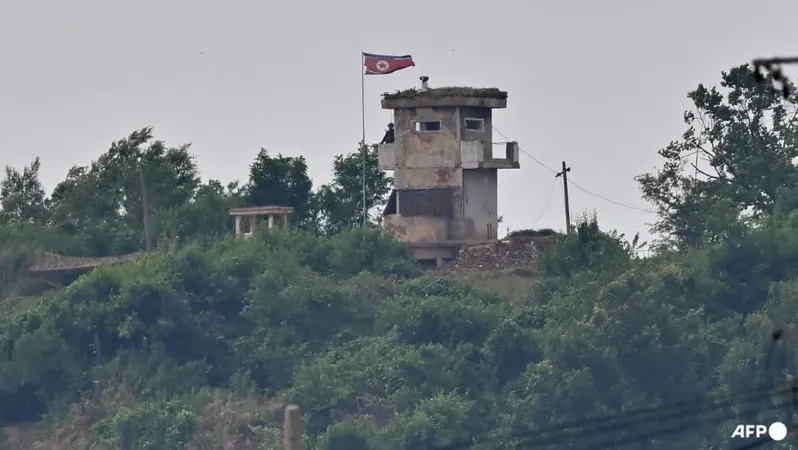
Dramatic North Korean Defection Confirmed as Pyongyang Closes Its Borders
2024-10-11
Author: Wei
SEOUL: In a surprising turn of events, a suspected North Korean defector successfully crossed the unofficial western maritime border into South Korea last month, as reported by Seoul's military on Friday, October 11.
This development comes shortly after North Korea announced plans to permanently close its border with the South amid rising tensions.
North Korea's Drastic Measures
The North Korean military declared earlier this week that it will "permanently shut off and block the southern border" by severing all connections via roads and railways and constructing "strong defense structures." This drastic measure is analyzed as a means to prevent citizens from fleeing to the South, indicating increasing paranoia within the regime.
Seoul’s Military Response
According to Kim Myung-soo, chairman of South Korea's Joint Chiefs of Staff, the North's recent actions could be aimed at preventing "the external leakage of internal personnel" into South Korea. Seoul’s military confirmed that a person believed to be a North Korean national was intercepted in the West Sea in mid-September and subsequently handed over to the appropriate authorities.
Escape Attempts
Reports from South Korea's Yonhap news agency suggest that the defector was attempting to escape using a wooden boat, signifying the extreme lengths to which individuals are willing to go for freedom. This incident marks a notable continuance of recent defection trends; August saw two other escapes, one across the heavily fortified land border and another via the neutral zone around the Han River estuary.
Safety Concerns along the Border
Concerns have been raised regarding safety along the border. In July, South Korea reported that Pyongyang had deployed tens of thousands of new landmines and erected barriers, which have led to several casualties among North Korean soldiers due to accidental detonations.
History of Defections
Despite the difficulties, tens of thousands of North Koreans have managed to defect to the South since the Korean Peninsula was divided during the 1950s Korean War. Most defectors initially travel overland to neighboring China and then make their way to a third country, such as Thailand, before finally reaching South Korea. However, following the outbreak of COVID-19, the number of successful defections dropped significantly due to North Korea's strict border controls and purported shoot-on-sight orders for those attempting to flee.
Surge in Defectors
Interestingly, reports indicate that the number of defectors reaching South Korea surged nearly threefold last year, totaling 196, as more individuals from privileged backgrounds, including diplomats and students, sought to escape the oppressive regime. This surge highlights the dire humanitarian situation exacerbated by harsh living conditions, food shortages, and inadequate responses to natural disasters faced by North Koreans.
Implications of Defections
The implications of these defections and the tightening of North Korea's borders are significant, suggesting a growing desperation among its citizens and an increasingly isolated regime. As the situation evolves, the international community watches closely, aware that the plight of North Korean defectors underscores fundamental human rights issues and the urgent need for humanitarian assistance in the region.


 Brasil (PT)
Brasil (PT)
 Canada (EN)
Canada (EN)
 Chile (ES)
Chile (ES)
 España (ES)
España (ES)
 France (FR)
France (FR)
 Hong Kong (EN)
Hong Kong (EN)
 Italia (IT)
Italia (IT)
 日本 (JA)
日本 (JA)
 Magyarország (HU)
Magyarország (HU)
 Norge (NO)
Norge (NO)
 Polska (PL)
Polska (PL)
 Schweiz (DE)
Schweiz (DE)
 Singapore (EN)
Singapore (EN)
 Sverige (SV)
Sverige (SV)
 Suomi (FI)
Suomi (FI)
 Türkiye (TR)
Türkiye (TR)